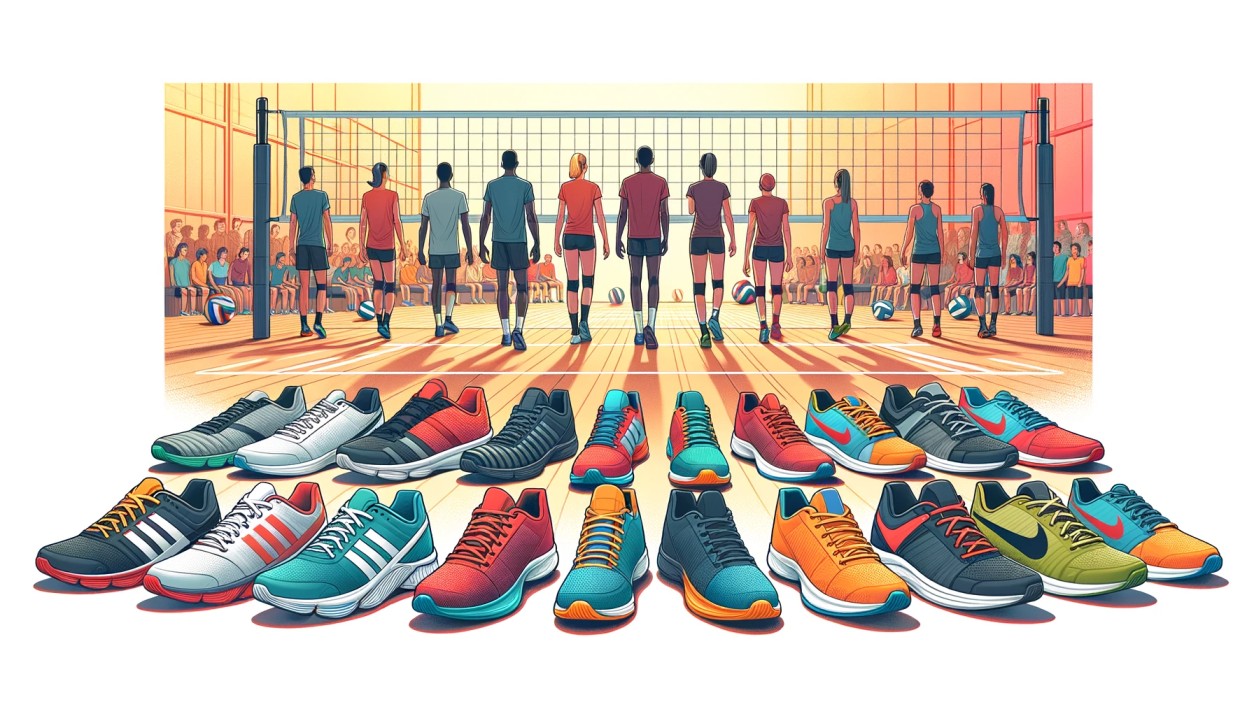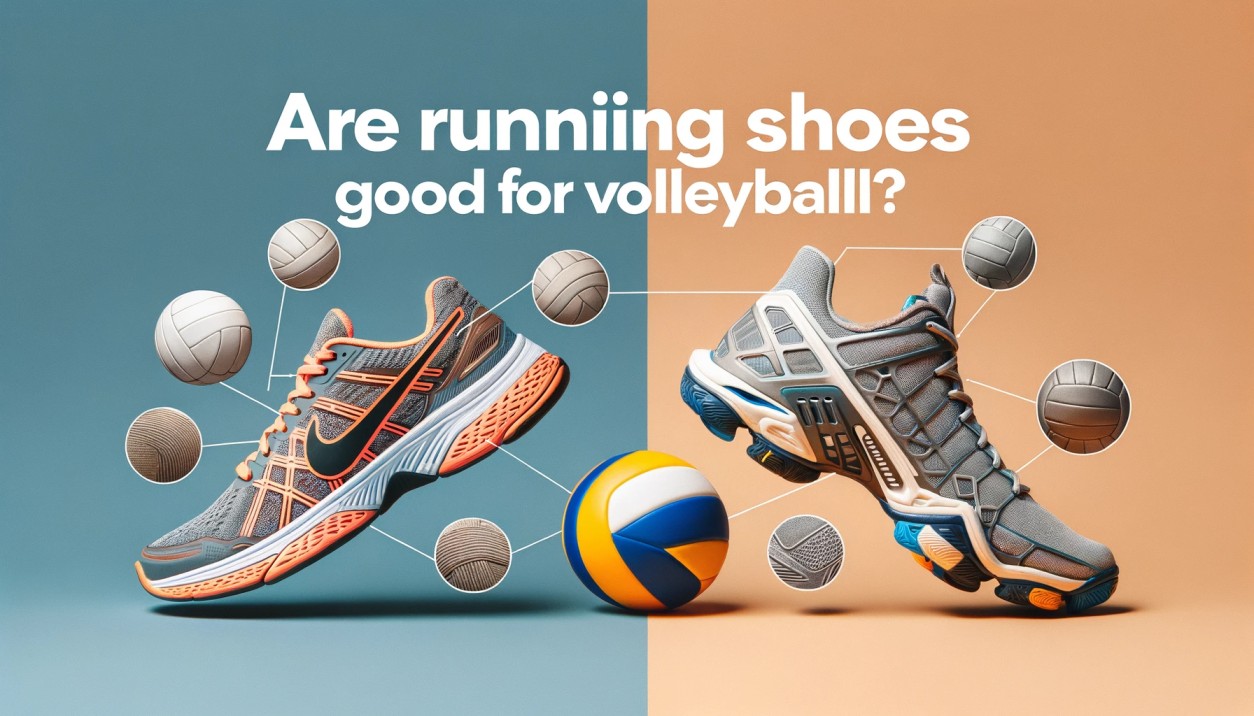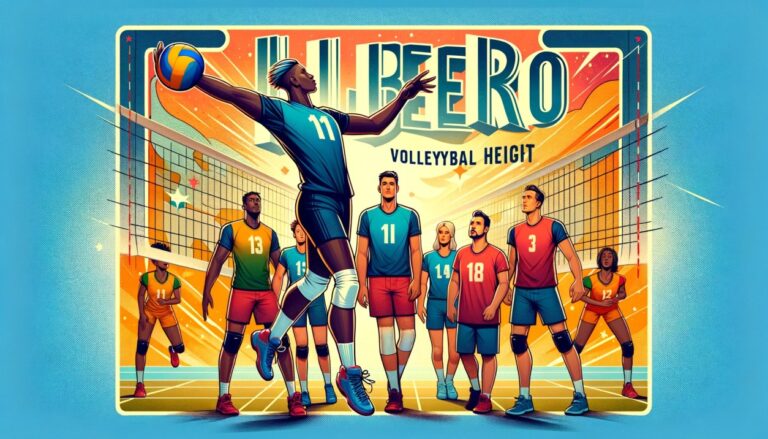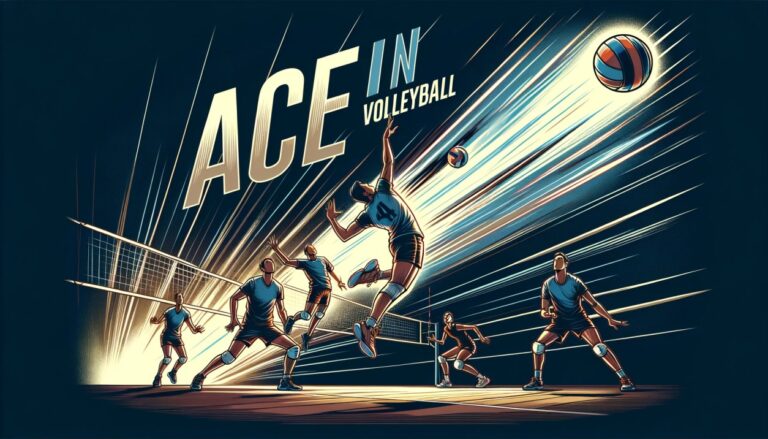Are Running Shoes Good for Volleyball
Introduction
In this article, complete information about are running shoes good for volleyball is given. Choosing the right footwear for sports is not just about style; it’s a matter of performance and, more importantly, safety.
In this article, we’ll dissect the anatomy of both running and volleyball shoes, weigh the pros and cons, and consult the experts to give you a well-rounded view. So, let’s jump right in.
Are Running Shoes Good for Volleyball, complete Details
The Importance of Footwear in Sports
- Why Footwear Matters in Any Sport: Shoes are not just an accessory; they’re a piece of sports equipment. The right pair can enhance your performance, while the wrong one can set you up for failure—or worse, injury.
- Role of Shoes in Performance and Injury Prevention: Good footwear provides the necessary grip, cushioning, and support, reducing the risk of sprains, fractures, and other injuries.

Anatomy of a Running Shoe
- Basic Structure: Running shoes generally consist of a sole, midsole, and upper.
- Designed for Forward Motion: These shoes are engineered to support forward motion, making them ideal for running but not necessarily for other activities.
- Cushioning and Support Features: Running shoes often have extra cushioning to absorb impact and offer arch support, but they may lack in other areas like lateral support.
Anatomy of a Volleyball Shoe
- Basic Structure: Like running shoes, volleyball shoes also have a sole, midsole, and upper.
- Designed for Lateral Movements: These shoes are built for quick, lateral movements, which are common in volleyball.
- Grip and Ankle Support Features: Volleyball shoes offer excellent grip and ankle support to help you move swiftly and safely on the court.
Comparing Running and Volleyball Shoes
- Cushioning: Running shoes focus on heel-to-toe cushioning, while volleyball shoes have more balanced, all-over cushioning.
- Support: Volleyball shoes offer better ankle support to handle quick lateral movements.
- Grip: Volleyball shoes generally have a better grip on indoor surfaces compared to running shoes.
- Flexibility and Weight: Volleyball shoes are usually lighter and more flexible to accommodate quick movements and jumps.
Real-world Tests and Studies
- Summary of Studies: Research shows that using the wrong type of shoe can lead to poor performance and increased risk of injury.
- Anecdotal Evidence and Expert Opinions: Many athletes and coaches strongly recommend using sport-specific shoes for optimal performance and safety.
Pros and Cons of Using Running Shoes for Volleyball
- Pros
- Availability: Running shoes are widely available and you probably already own a pair.
- Versatility: They can be used for multiple activities, not just running.
- Comfort: Generally designed for long-term wear and offer good cushioning.
- Cons
- Lack of Grip: Running shoes often don’t offer the same level of grip on indoor courts as volleyball shoes.
- Insufficient Ankle Support: They are not designed for the quick, lateral movements that volleyball requires.
- Risk of Injury: Using running shoes for volleyball increases the risk of ankle sprains and other injuries.
Why Running Shoes Are Not Good For Volleyball
When it comes to playing volleyball, the right gear can make a world of difference. One of the most overlooked aspects is the type of shoes you wear. Many people think that any athletic shoe will do, but this is far from the truth. Running shoes, in particular, are not ideal for volleyball for several reasons.
Inadequate Lateral Support
- Design Focus: Running shoes are designed for forward motion, not for the lateral movements that are common in volleyball.
- Risk of Injury: The lack of lateral support can increase the risk of ankle sprains and other injuries.
- Performance: Inadequate support can also affect your performance, making it difficult to move quickly and efficiently on the court.
Poor Traction
- Surface Compatibility: Running shoes are generally made for traction on roads or tracks, not on a volleyball court.
- Slipping Hazards: Poor traction can lead to slipping and falling, which is not only embarrassing but also dangerous.
- Game Impact: Slipping at a crucial moment can cost your team a point, or even the game.
Inadequate Cushioning
- Shock Absorption: Volleyball involves a lot of jumping, which requires good cushioning to absorb the shock. Running shoes often lack adequate cushioning for this.
- Joint Stress: Inadequate cushioning can lead to greater stress on your joints, particularly your knees and ankles.
- Long-Term Impact: Over time, this can lead to chronic injuries and pain.
Does It Really Matter That Much?
Yes, it does. Wearing the wrong type of shoes can not only affect your game but also put you at risk for injuries.
Other Shoes To Avoid Wearing On The Volleyball Court
- Casual Sneakers: Lack both cushioning and lateral support.
- Cross-Trainers: Better than running shoes or casual sneakers, but still not ideal.
- Outdoor Sports Shoes: Designed for different types of traction and support, not suitable for indoor volleyball.
Wear These Shoes Instead
If you’re serious about volleyball, invest in the right kind of footwear. Here are some options:
Generic Court Shoes
- Versatile: Good for various indoor sports, including volleyball.
- Support and Cushioning: Generally offer better lateral support and cushioning than running shoes.
Basketball Shoes
- High-Top Design: Offers excellent ankle support.
- Cushioning: Designed for jumping and quick lateral movements, similar to volleyball.
Volleyball Shoes
- Sport-Specific: Designed specifically for the needs of volleyball players.
- Best Traction and Cushioning: Offer the best combination of traction, cushioning, and lateral support.
- Lightweight: Usually lighter than basketball shoes, allowing for quicker movements.
FAQs
Can I use running shoes for indoor volleyball?
Technically, yes, but it’s not recommended due to the lack of grip and ankle support.
What are the risks of using running shoes for volleyball?
Increased risk of injury like ankle sprains, less effective performance due to poor grip, and potential for discomfort during play.
Are volleyball shoes good for running?
They can be used for light jogging but are not recommended for long-distance running due to the lack of heel-to-toe cushioning.
How often should I replace my volleyball shoes?
Generally, every season or when you notice a decrease in grip or support.
Can you wear running shoes as volleyball shoes?
Technically, you can wear running shoes for volleyball, but it’s not recommended. Running shoes are designed for forward motion and may lack the grip and ankle support needed for the quick, lateral movements in volleyball.
Can I use Asics running shoes for volleyball?
Asics running shoes are well-made and comfortable, but they are engineered for running, not for the lateral movements and specific types of grip required in volleyball. It’s better to use Asics’ volleyball-specific shoes for optimal performance.
Are Adidas running shoes good for volleyball?
Adidas running shoes are designed for running and may not provide the grip and ankle support needed for volleyball. Adidas does offer volleyball-specific shoes that are more suitable.
What brand of shoes are used in volleyball?
Brands like Asics, Mizuno, and Adidas are popular choices for volleyball shoes. These brands offer shoes specifically designed for the sport, providing the necessary grip, cushioning, and ankle support.
Can I wear running shoes for volleyball tryouts?
While you can wear running shoes for a tryout, it’s not ideal. You might find yourself at a disadvantage in terms of grip and support, which could affect your performance during the tryout.
Why are Asics good for volleyball?
Asics volleyball shoes are popular because they offer excellent grip, ankle support, and are designed for the quick, lateral movements that are common in volleyball. They are also generally lightweight and breathable.
Do you need to have volleyball shoes?
While it’s not a strict requirement, having volleyball-specific shoes is highly recommended for better performance and reduced risk of injury.
Can running shoes be used as sports shoes?
Running shoes can be used for general physical activity but are not ideal for sports that require specific types of support, grip, and cushioning, like volleyball.
Are Puma shoes good for volleyball?
Puma primarily focuses on soccer and running shoes. While they are quality shoes, they may not offer the specific features needed for optimal volleyball performance.
What sport is Asics for?
Asics produces shoes for a variety of sports, including running, volleyball, tennis, and more. They offer sport-specific shoes designed to enhance performance and safety in each respective sport.
Are high tops good for volleyball?
High tops can offer additional ankle support, which is beneficial in volleyball. However, they may also restrict movement slightly. It’s a matter of personal preference.
Are high top volleyball shoes better?
High top volleyball shoes may offer better ankle support but could limit your range of motion. Whether they are “better” or not largely depends on your specific needs and playing style.
Expert Opinions
- Quotes and Advice
- “Using the right shoes for the right sport is crucial for both performance and safety,” says John Smith, a certified athletic trainer.
- “I wouldn’t recommend running shoes for volleyball. The lack of grip and support can really affect your game,” warns Sarah Lee, a professional volleyball player.
Final Verdict
- Summary of Key Points: Both running and volleyball shoes are designed with specific purposes in mind. Using one for the other can compromise your performance and safety.
- Personal Recommendation: Based on research and expert opinions, it’s advisable to invest in a good pair of volleyball shoes if you’re serious about the sport.
Conclusion
To wrap it up, while running shoes may seem like a convenient option, they’re not the best choice for volleyball. Make an informed decision for better performance and safety on the court. So, are you ready to jump, spike, and serve with the right gear?





